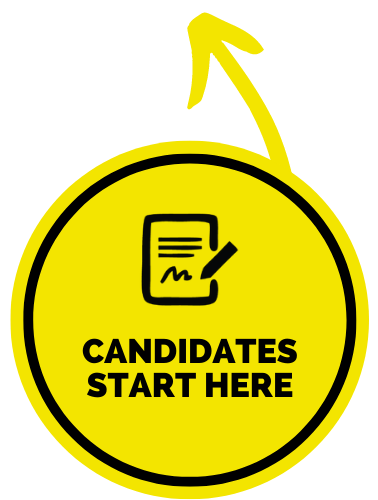
Resigning can be scary as you are almost ‘breaking’ up with the people that have paid you for the last few months to years, they have become your other family and it is has been where you have spent 1/3 of your time! But change can be good for you and the company … it is doing it the right way that helps.
In this article we will explain what to do before you resign, how to resign (with an example), how to handle the ‘break-up’ and finally what to do in your notice period.
First up, what you HAVE to do before you resign
Ensure you find the latest employment contract that you signed. This will tell you the notice period you need to give. Notice periods can be weeks, a month, a calendar month, or a few months. A big part here is to take note of is how your contract reads:
‘Notice to be given is one month (or often said 30 days)’
or
‘Notice to be given is one calendar month.’
They are vastly different, for the first option it means you can resign today on the 7th and your last working day will be the 6th of next month. If it is a calendar month and you resign today you will need to work this month and a full calendar month 1st to the 28th/30th/31st (depending on the month). You will notice why many people resign in February or resign on the last working day of the previous month.
A note if you never signed a contract and the company does now have any HR policy then the Basic Conditions of Employment Act say:
One week, if the employee has been employed for 6 months or less;
2 weeks, if the employee has been employed for more than 6 months by not more than one year;
4 weeks, if the employee has been employed for more than 6 months.
How to resign?
First up if you can see your direct line (aka boss) directly, then a printed copy would be ideal. Else if you are virtual, you can email the resignation letter. A template you can use is below (you need to personalise it for the reasons on why you are leaving). A note this is not the time to tell all your grievances, or that you hate your boss, this is the most important letter to ensure you do not burn bridges – remember you will need them for your next reference.
Email Subject Line: Your Name Resignation
Dear Direct Line Name,
I write to inform you that I am resigning from my position here as JOB TITLE. My last day will be NOTICE PERIOD.
Thank you so much for all of the opportunities this company has provided me. I have learned so much these past NUMBER years, and will never forget the kindness that the business, team and you have given me.
Let me know if there is anything I can do to make this transition easier.
Thank you again for your years of support and encouragement.
Kind regards,
Your Name
You can add the reason on why you are leaving for example; you might state that you are leaving for personal reasons, you are returning to school, or you have decided to change your career path. Do not go into detail if you have a new job, however.
How to handle the breakup?
What many employees do not always understand is that when you resign, your direct line or the company may take it personally. Understand that they are losing someone that they like, who has assisted the company grow to the current point and that they are almost ‘hurt’ that you are leaving.
At the same time employers need to understand why the employee is leaving, and this is not the time to make their jobs more difficult, there is something to say about ‘don’t burn your bridges’ – you never know. Treat them like you would like to be treated when you find a new challenge or need to leave a company.
One subject you need to take into account is a ‘Counter Offer’ – this is when a company will offer you more money or benefits to stay. In my career almost 95% of the time this only works as a plaster for about 6 months then the person leaves any way.
If you have accepted another role and you now accept a counter offer you create a mistrust issue for all 3 parties. The new company you meant to start with will not hire you again and will now distrust you. Your current company now do not trust you as you were looking elsewhere. And you now cannot trust yourself with this decision. A counter offer never makes any one feel better.
Final your last month
In your notice period this is the time to ensure when you leave your position has all hand over documentation. There are companies that will do this for you like https://www.touchdreams.co.za/ – they will document your job and create Standard Operating Procedures to give to the next person.
This is also the time to train someone new, or those taking over your role and lastly to clean up your desk. This is not the time to take stationery that is not yours, give back what is not yours to your direct line.
Lastly consider different benefits you need to move or end:
- You are entitled to any annual leave due to you (often you cannot take this by HR policy in your notice period so you must be paid out for it);
- You cannot carry over any sick or compassionate leave (or be paid out for it);
- You need to move your Retirement Annuity or Pension Fund to a Preservation fund – chat to your broker;
- Your medical aid – ensure your new company has the same one else give notice to cancel or move to your own personal name;
- Group Life is often only offered to you through the company so you will need to get your own one;
- Think through if you use the company laptop or any other IT equipment that you will need to give back (else you can offer to purchase it from the company when you leave);
- Delete all personal data from your computer (all those photos and personal documents you save onto your PC);
- If you have shares you need to reach the share scheme to see if you have to sell or get to keep the shares.
In conclusion
No one has a crystal ball to determine what will happen next, you never know if you will need to come back, or if you will need a reference from the company sooner rather than later or if your direct line will soon become your mentor. Keep the relationships, do not burn your bridges and hand over well so the next person will not feel as overwhelmed as you did when they start.
Remember as you question if you should resign that ‘Any change, even a change for the better, is always accompanied by drawbacks and discomforts’.









